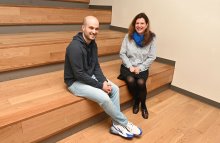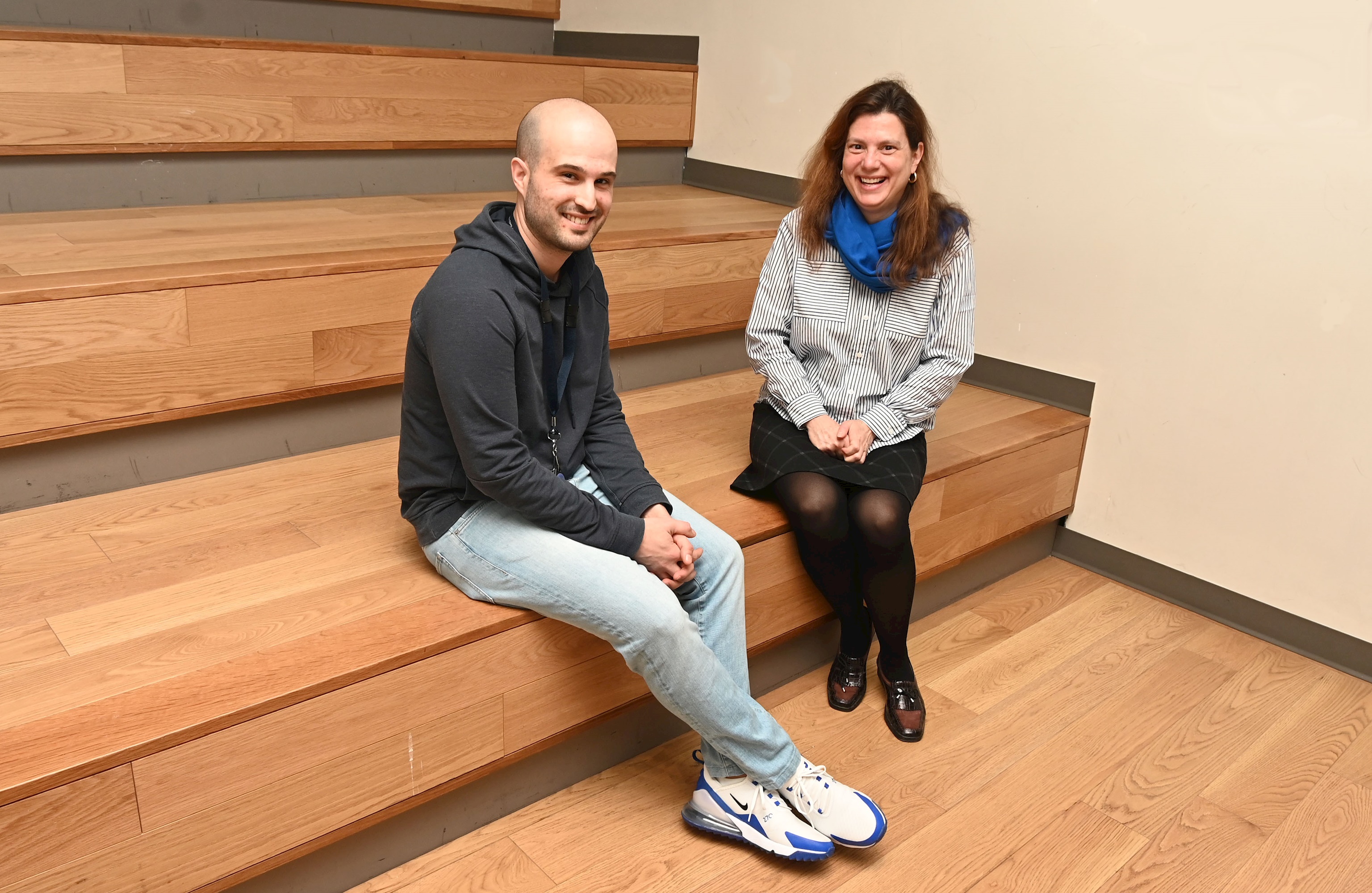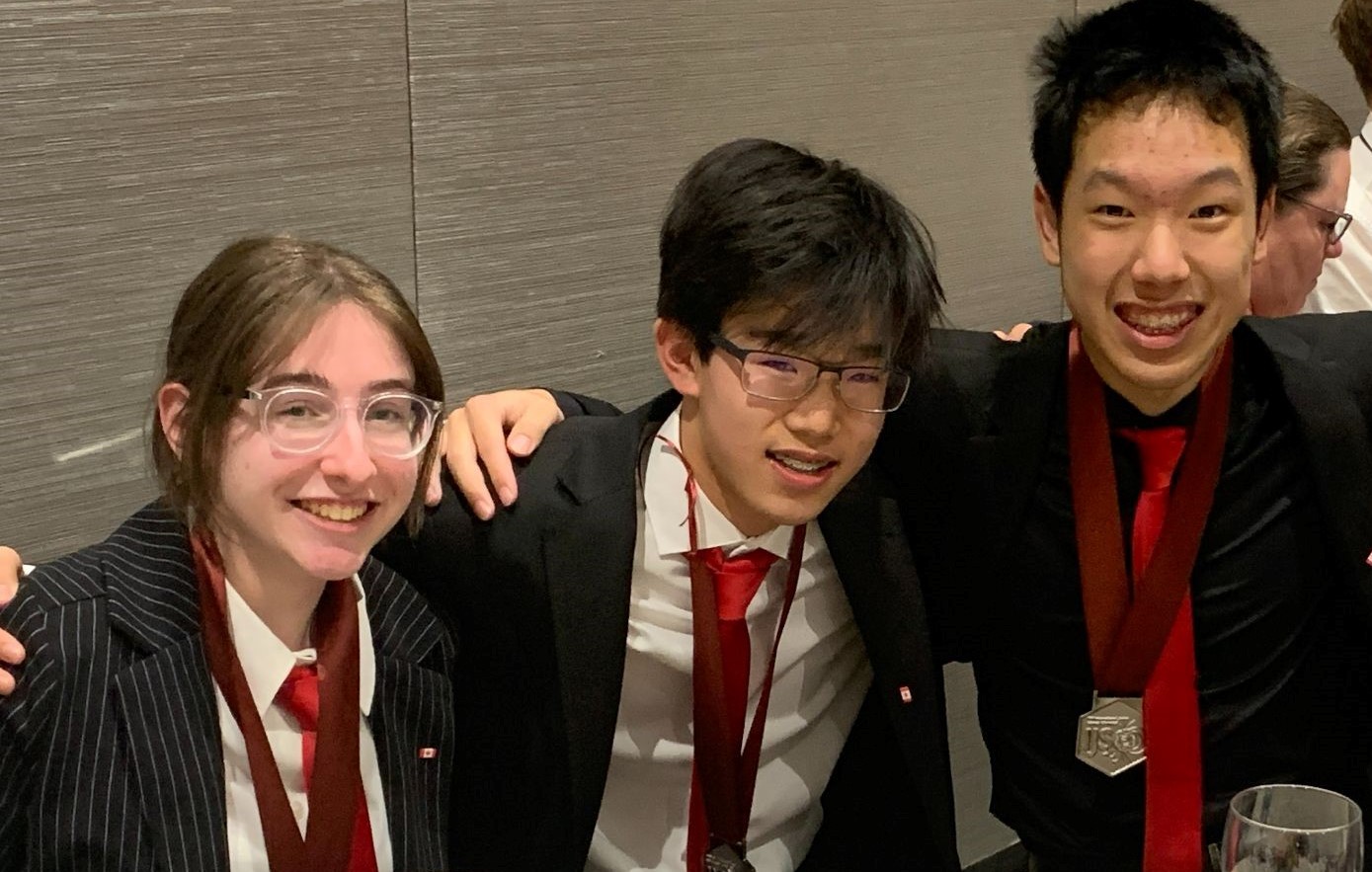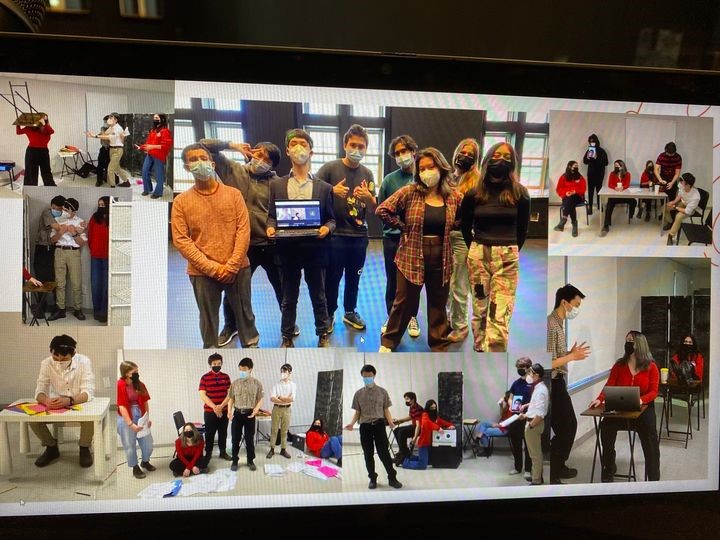371 Bloor Street West
Toronto, ON M5S 2R7 get directions
Toronto, ON M5S 2R7 get directions


UTS strives to ensure the education we provide measures up, not only to other Canadian schools, but on a global scale, preparing our students for success wherever the future takes them. The government of Ontario sets a standard curriculum and overall expectations for students for each grade level and subject. However, assessment and evaluation of the overall expectations is not standardized and different schools have different standards for what constitutes meeting or exceeding expectations. Some schools take part in the International Baccalaureate (IB) program, which includes standardized evaluation tasks that helps schools gauge where they stand. At UTS, we seek accountability for our academic standards through objective measures: a combination of external international tests and participation in extended co-curricular programs that often lead to students competing in international Olympiads and other national and international competitions.
“How do we really know we are doing our job well?” says Jenny Pitt-Lainsbury, UTS Vice Principal of Academics. “It’s the fundamental question we constantly ask ourselves as educators. Looking at our school as a place of teaching and learning, we want to know we are doing our best job at both, because they're symbiotic. External objective measures help tell us how we’re doing.”

Alan Kraguljac, the UTS Interdisciplinary Studies Department Coordinator and AP/Extended Programs Facilitator,
and Jenny Pitt-Lainsbury, UTS Vice Principal of Academics, track UTS benchmarks.
The most exhaustive method UTS employs is the International Schools’ Assessment (ISA) tests in mathematical literacy, scientific literacy, and reading and writing, taken by all F1 (Grade 7) and M3 (Grade 9) students. The test does not affect their grade, but students are encouraged to prepare and try to do well.
“The ISA gives us an external check-in to see how our students are doing compared to large groups of other students worldwide,” says Alan Kraguljac, the UTS Interdisciplinary Studies Department Coordinator and AP/Extended Programs Facilitator, “and because our students take it in their F1 and M3 years, it allows us to track their learning from the year they entered UTS until they’ve had two years of UTS education to see their progress and make sure we're bolstering their education the way we should be.”
Administered by the Australian Council for Education Research, a not-for-profit research organization, the ISA aligns with the Organization for Economic Co-operation and Development’s Programme for International Student Assessment surveys which evaluate educational systems worldwide. The ISA tests are taken by about 90,000 students in 70 countries every year, except for pandemic disruptions. UTS resumed the test this school year and the results show UTS performing well above the global average, with our highest performance in scientific literacy. The analysis also shows the 2022 scores of our M3 (Grade 9) students are on average higher than the 2022 scores of F1 (Grade 7) students, which could suggest that two years at UTS enhance performance.

UTS also uses our students’ results from the Preliminary SAT (PSAT), a practice version of the SAT for M4 (Grade 10) and S5 (Grade 11) students, and Advanced Placement® (AP) exams to benchmark school performance, though as not all students take these, they don’t provide the same gauge as the mandatory ISA. Increasingly, UTS is tracking data over the long-term, with Alan synthesizing the results – prior to teaching, he became well-versed on data analysis while completing research studies at SickKids and the Mount Sinai Hospital ICU.
Alan also works with Jenny to develop the AP program and other enrichment opportunities for students at UTS, as well as track our progress and identify areas for growth. Part of this includes building a high-level student research program.
Recently, the academics team analyzed the AP performance of UTS students over the last five years, looking at the impact of the pandemic and performance across subject areas, which found UTS students consistently score higher than the provincial average and much higher than the global average. The pandemic did not lead to an overall decline in results, but anecdotally teachers noted students were less able to cope with the demands of the test format than they were before the pandemic.
Alan’s role also includes tracking the extended programs at UTS, which include Math, Science, Computer Science and Geography Olympiads, as well as a wide spectrum of national and international contests, which serve as another method of gauging how a UTS education measures up on the national and international scale.
“It's benchmarking, not the same as the ISA or AP tests where you have a large number of students taking them, but it serves as a marker and we track data from student results on the Math and Science contests and Olympiads,” says Jenny. “Many of these contests involve tests that have quantitative benchmarking capabilities. In addition, there are powerful benchmarking opportunities from performance in competitions such as debate, DECA business case competitions, and online recitation contests such as Poetry in Voice and those in other languages, where UTS students demonstrate a skillset before judges on a national stage.”
.jpeg)
UTS students William, Trinity, Jessica, Saachi and Meridith became provincial champions at DECA Ontario business
case competition this year, and were just five of the 19 UTS students who qualified for the international conference.
Historically, UTS has enjoyed great success in science and other Olympiads. Most recently, M4s (Grade 10s) Daria and Jarmin, and S5 (Grade 11) Brandon earned silver medals at the International Junior Science Olympiad in Bogotá last December, where they were part of the Canadian national team.
“I feel pretty good that I had the chance to have this experience,” says Daria, who was the only girl on the six-person team. “It’s more than just the medal, it's the knowledge and experience I gained, and knowing that the hard work I did to qualify and to go to this competition paid off.”
In Bogotá, she and the other students enjoyed getting to know teams from other countries, socializing at dinner, playing chess, discovering Colombian culture and exploring the sights, and even gathering together for an impromptu music night. For Daria, it was only her second year taking part in extracurricular science programs.
“The first year I did the Olympiad program, I was just dipping my toe in the water, but UTS definitely helped me establish a pretty strong background through general science courses for me to qualify for the Junior Science Olympiad National Camp,” she says. “It was pretty amazing UTS managed to do that for me.”
This year, as an M4 (Grade 10) student she started taking classes in Chemistry, Physics and Biology, which she says are “very hands-on” and extremely helpful for the experimental and highly collaborative training she did for the Olympiad. “Because the UTS curriculum is so enriched, it really provides a good foundation to do deep dives into challenging Olympiad questions. When you have a strong problem-solving and critical thinking background, you’re able to grasp information faster.”

UTS M4 student (Grade 10) Daria, S5 (Grade 11) Brandon and M4 Jarmin earned silver medals
at the International Junior Science Olympiad in December.
Aside from Olympiads, UTS students travel near and far to test their mettle in DECA, play verbal volleyball in debate and public speaking competitions and Mock Trial, and share the depths of their knowledge in the Classics Conference and History Bee and Bowl competition. They solve problems at the North American Computational Linguistics Open Competition. They show their passion for the French language with speeches at the Concours d'art oratoire, for the environment at Envirothon and more.
Their successes are too numerous to mention, but as an example, UTS Drama students regularly win awards at The National Theatre School Drama Festival. Last year, the original comedy, Corporate Hell, won five awards including Outstanding New Original Play, with James, an S5 (Grade 11) student at the time, taking both the Directing and Playwriting Award of Excellence.
“While we enjoy receiving awards, they are pretty subjective in the arts,” says UTS Drama Teacher Gabrielle Kemeny. “Our benchmarks are more about experiences for students such as participating in large-scale arts events like the Senior Drama Showcase or Nocturne. The greatest rewards come from the collaborative creation, artistry, memories and deep learning that take place during these experiences.”

The original comedy, Corporate Hell, created by members of the UTS Senior Drama Class, won five awards
at the National Theatre School of Canada's Drama Festival including Outstanding New Original Play.
The bottom line of benchmarking is not the numbers or awards, but the learning behind it.
“We benchmark to make sure that our perception that students are doing well is verifiable by outside markers,” says Jenny. “It’s not just about prize-winning, but about always thinking how to move forward with teaching and learning in ways that meet the needs of our students and bolster their actual learning. We rely on these objective measures to serve as checks and balances to keep us accountable.”
